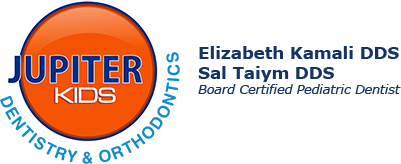As a parent, you’re always concerned about your child’s health, and that includes their dental health. Baby teeth, also known as primary teeth, serve as placeholders for permanent teeth. Any issues can potentially affect the development and health of permanent teeth.
Understanding Baby Teeth
Your child’s first set of teeth, commonly known as baby teeth or primary teeth, typically start to appear around six months of age. These teeth are crucial for various reasons. They help your child chew food, speak clearly, and hold space in the jaw for permanent teeth to emerge later on.
Importance of Healthy Baby Teeth
Healthy teeth in babies play a significant role in the development of your child’s oral health. They aid in proper speech development and ensure your child can eat a balanced diet comfortably. Additionally, they guide the eruption of permanent teeth into their correct positions.
Potential Issues with Baby Teeth
Although baby teeth are temporary, they can still encounter various problems that may impact the arrival and health of permanent teeth. Common issues include tooth decay, premature loss due to accidents or decay, and misalignment.
Impact of Baby Teeth Problems on Permanent Teeth
1. Tooth Decay: Tooth decay, if left untreated, can progress and affect the underlying permanent teeth. Decay in baby teeth can lead to cavities and infections that may spread to adjacent permanent teeth, compromising their health and integrity.
2. Premature Loss: Premature loss of baby teeth, whether due to decay, injury, or other factors, can disrupt the natural sequence of tooth eruption. When a baby tooth is lost prematurely, neighboring teeth may shift into the vacant space, potentially causing crowding or misalignment issues for the permanent teeth attempting to emerge.
3. Misalignment: Misaligned teeth in babies can create obstacles for permanent teeth as they attempt to erupt into their designated positions. Crooked or crowded teeth may not provide sufficient space for permanent teeth to emerge properly, leading to misalignment issues that may require orthodontic intervention in the future.
4. Negative Impact on Oral Health Habits: Baby teeth problems can also impact your child’s oral health habits and attitudes. Pain or discomfort associated with dental issues may deter your child from maintaining good oral hygiene practices, which can have cascading effects on the health of both baby and permanent teeth.
5. Psychological Impact: Dental problems with baby teeth can also have psychological effects on your child, affecting their self-esteem and confidence. Issues such as tooth decay or premature loss of teeth may cause embarrassment or self-consciousness, potentially impacting your child’s social interactions and overall well-being.
Preventing Baby Teeth Issues
Preventing baby teeth issues is paramount in ensuring the healthy development of your child’s smile and laying the foundation for their long-term oral health. Here’s an in-depth look at strategies to prevent common problems:
1. Maintain Good Oral Hygiene: Encourage your child to brush their teeth at least twice a day with fluoride toothpaste. Use a soft-bristled toothbrush suitable for their age and ensure they brush all surfaces of their teeth thoroughly. Additionally, introduce flossing as soon as their teeth start to touch to remove plaque and food debris from between teeth.
2. Healthy Dietary Habits: Limit sugary snacks and beverages in your child’s diet, as excess sugar can contribute to tooth decay. Encourage them to consume a balanced diet rich in fruits, vegetables, whole grains, and lean proteins. Avoid giving your child sugary drinks in bottles or sippy cups, especially before bedtime.
3. Regular Dental Check-ups: Schedule regular dental visits for your child, starting around their first birthday or when their first tooth erupts. Routine check-ups allow the dentist to monitor your child’s oral health, detect any early signs of dental issues, and provide preventive care such as fluoride treatments or dental sealants to protect their teeth from decay.
4. Fluoride Supplementation: Depending on your child’s age and risk of tooth decay, your dentist may recommend fluoride supplements or fluoride varnish applications to strengthen their tooth enamel and prevent cavities. Follow your dentist’s recommendations regarding fluoride usage to ensure optimal protection for your child’s teeth.
5. Preventive Treatments: In addition to fluoride treatments, dental sealants can be applied to your child’s molars to create a protective barrier against bacteria and food particles that can lead to cavities. Sealants are especially beneficial for children prone to developing cavities or those with deep grooves in their teeth.
Seeking Professional Care
If you notice any signs of dental problems in your child, such as tooth pain, discoloration, or difficulty chewing, it’s essential to seek prompt dental care. Your pediatric dentist can assess the situation and provide appropriate treatment to prevent further complications.
Baby teeth issues can indeed impact the arrival and health of permanent teeth. By understanding the importance of maintaining healthy baby teeth and taking proactive steps to prevent dental problems, you can help ensure your child’s oral health and the proper development of their permanent teeth. Remember, early intervention and regular dental care are key to promoting a lifetime of healthy smiles for your kids.


